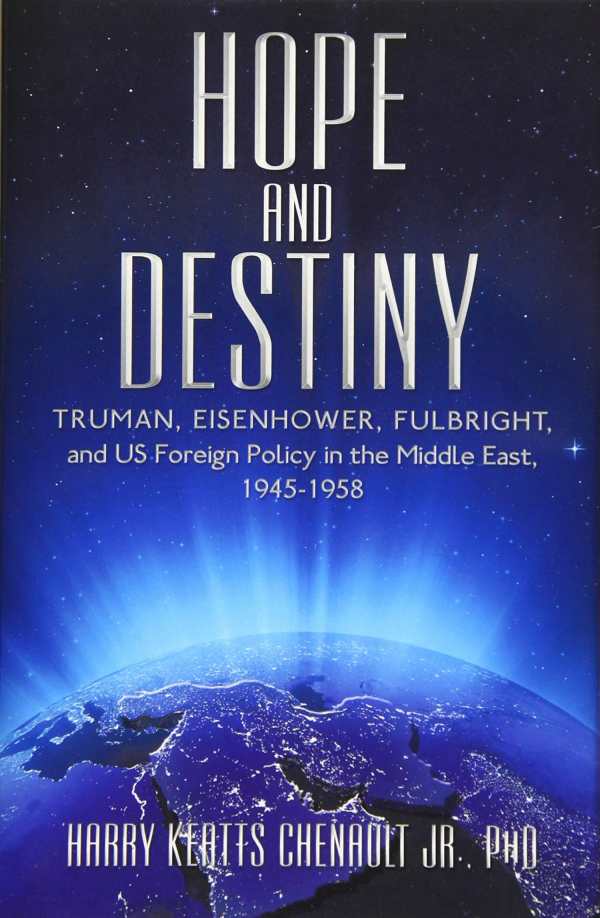Hope and Destiny
Truman, Eisenhower, Fulbright, and Us Foreign Policy in the Middle East, 1945-1958
Hope and Destiny is an insightful history of the US’s Middle Eastern policy.
Harry Keatts Chenault Jr.’s Hope and Destiny is a remarkable history of how the United States became involved in the Middle East that focuses on three figures who contributed to its foreign policy.
Devoted most to two presidents and a senator, the book first considers Harry Truman, whose Truman Doctrine addressed the spread of communism by providing support to any nation that felt threatened by the USSR. It then addresses Dwight D. Eisenhower, whose policy was that any Middle Eastern nation threatened by aggressive powers could request US aid. Senator J. William Fulbright is the last person of focus; in 1957, he tried to pursue peace in the Middle East by strengthening the US’s commitment to the United Nations, and by seeking new understanding about the war powers of the executive and legislative branches. All three men are credited with pursuing peace despite Soviet and Anglo-French aggression; for that, Chenault says, they deserved to be remembered.
Written with a sense of foreboding, the book draws on exhaustive research to make its case. It includes copious footnotes and a thorough appendix covering its primary sources. It asserts that Cold War-era policies in the Middle East were formed with good intentions, and argues that the people of the Middle East want “peace and freedom with justice,” and want to achieve this alongside their Israeli, Egyptian, and Palestinian neighbors.
The book unpacks the nuances of Middle Eastern history in intelligent, plain language. Each chapter maintains a consistent focus on the actions of the Truman-Eisenhower-Fulbright axis; as such, each development expands the book’s overarching picture of geopolitical history. Meanwhile, space is given to critiques of Fulbright’s interpretation of the Suez Crisis, and to detailing executive power, both from the perspectives of Eisenhower, one of the most powerful presidents in US history, and Fulbright, a vocal opponent of the “imperial presidency.”
The book progresses to an argument that the US’s Middle Eastern policy devolved because of human arrogance and short-sightedness. The Eisenhower administration, Chenault asserts, came to regret its support of Nasser during the Suez Crisis, as Nasser later supported anti-American and Arab nationalist movements throughout the Middle East. This regret is said to have translated into new, pro-Israel foreign policy aims—now the standard US approach to the Middle East.
Hope and Destiny is an insightful history covering victorious and damaging moments in the US’s development of its Middle Eastern policy.
Reviewed by
Benjamin Welton
Disclosure: This article is not an endorsement, but a review. The publisher of this book provided free copies of the book and paid a small fee to have their book reviewed by a professional reviewer. Foreword Reviews and Clarion Reviews make no guarantee that the publisher will receive a positive review. Foreword Magazine, Inc. is disclosing this in accordance with the Federal Trade Commission’s 16 CFR, Part 255.

